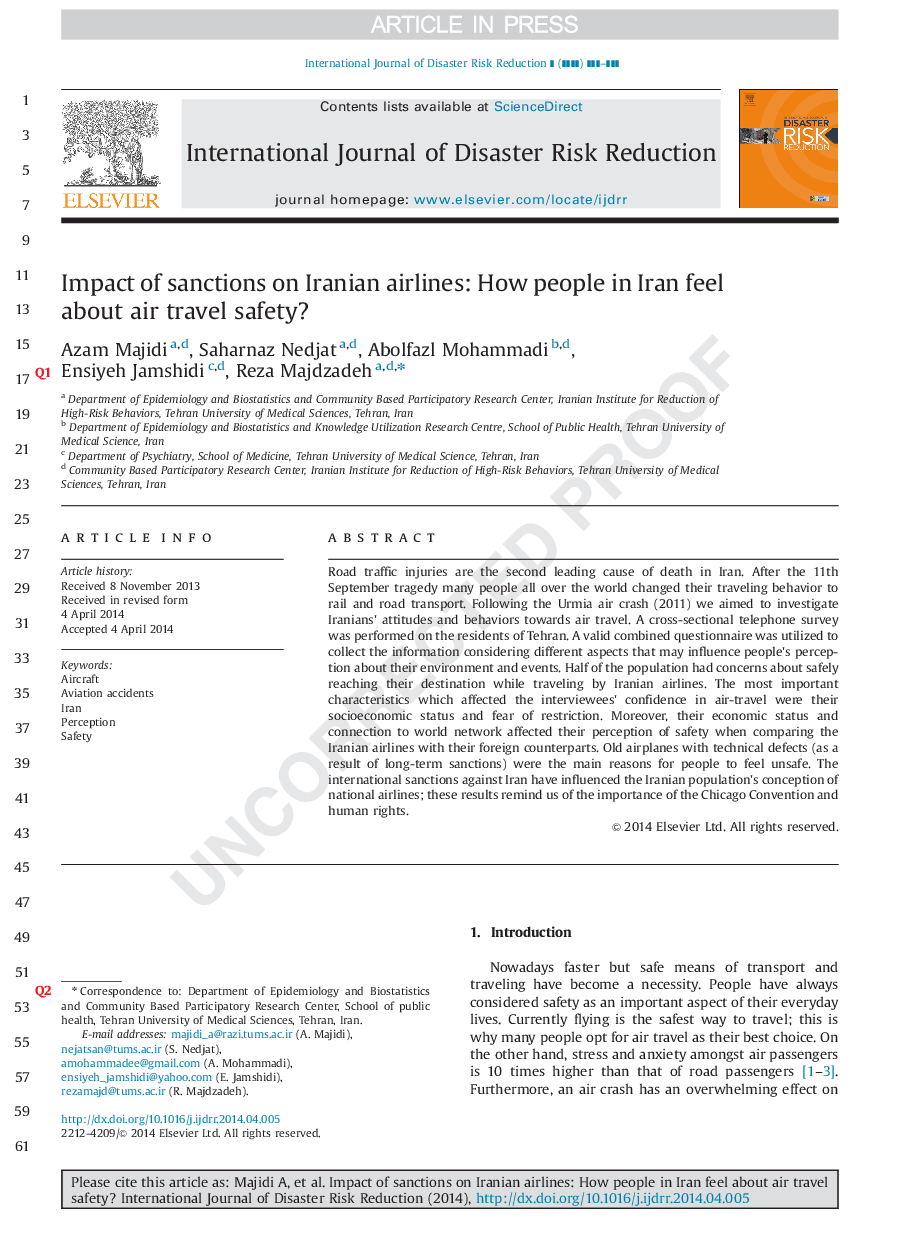| Article ID | Journal | Published Year | Pages | File Type |
|---|---|---|---|---|
| 7473346 | International Journal of Disaster Risk Reduction | 2014 | 8 Pages |
Abstract
Road traffic injuries are the second leading cause of death in Iran. After the 11th September tragedy many people all over the world changed their traveling behavior to rail and road transport. Following the Urmia air crash (2011) we aimed to investigate Iranians׳ attitudes and behaviors towards air travel. A cross-sectional telephone survey was performed on the residents of Tehran. A valid combined questionnaire was utilized to collect the information considering different aspects that may influence people׳s perception about their environment and events. Half of the population had concerns about safely reaching their destination while traveling by Iranian airlines. The most important characteristics which affected the interviewees׳ confidence in air-travel were their socioeconomic status and fear of restriction. Moreover, their economic status and connection to world network affected their perception of safety when comparing the Iranian airlines with their foreign counterparts. Old airplanes with technical defects (as a result of long-term sanctions) were the main reasons for people to feel unsafe. The international sanctions against Iran have influenced the Iranian population׳s conception of national airlines; these results remind us of the importance of the Chicago Convention and human rights.
Related Topics
Physical Sciences and Engineering
Earth and Planetary Sciences
Geophysics
Authors
Azam Majidi, Saharnaz Nedjat, Abolfazl Mohammadi, Ensiyeh Jamshidi, Reza Majdzadeh,
